#Opuntia ficus-indica
Explore tagged Tumblr posts
Photo



Untitled.
#photographers on tumblr#Indian fig prickly pear#Opuntia ficus-indica#Glendale#Arizona#abstraction in nature
104 notes
·
View notes
Text
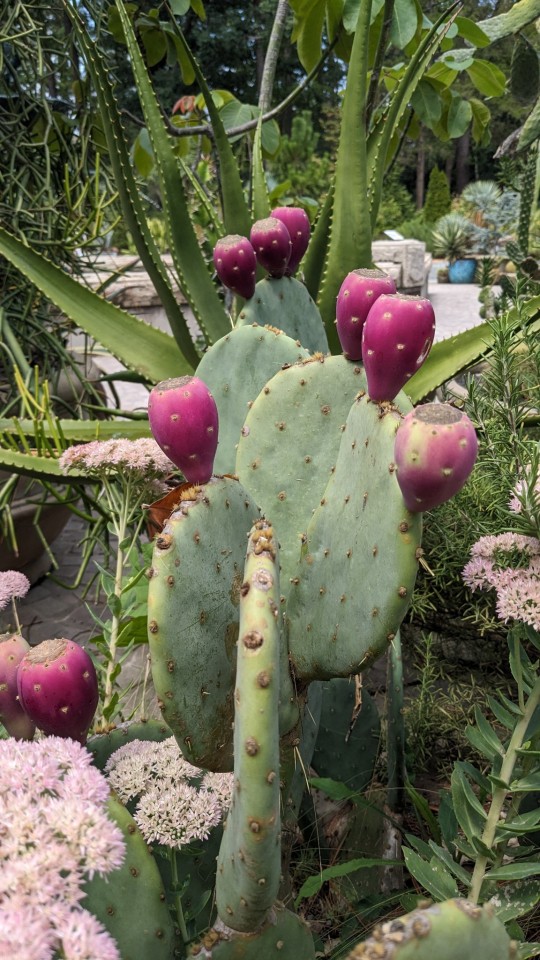
Opuntia ficus-indica / Prickly Pear at the Sarah P. Duke Gardens at Duke University in Durham, NC
#Opuntia ficus-indica#Opuntia#Prickly pear#Indian fig opuntia#Fig opuntia#cacti#Cactus#Fruit#nature photography#photographers on tumblr#Sarah P. Duke Gardens#Duke Gardens#Duke University#Durham#Durham NC#North Carolina#Native plants
40 notes
·
View notes
Text
OPUNTIA FICUS-INDICA 20230831284RT1 / FIGA DE MORO
Opuntia ficus-indica, the Indian fig opuntia, fig opuntia, or prickly pear, is a species of cactus that has long been a domesticated crop plant grown in agricultural economies throughout arid and semiarid parts of the world. O. ficus-indica is the most widespread and most commercially important cactus. It is grown primarily as a fruit crop, and also for the vegetable nopales and other uses. Cacti…

View On WordPress
#cactus#cactus flower#green#NATURE#Opuntia ficus-indica#plants#yellow#aesthetic#artistsontumblr#imiging#lensblr#lifeisbeautiful#original#originalphotographer#photographersontumblr#photography#pictureoftheday#thephotographerssociety#tumblers
6 notes
·
View notes
Text
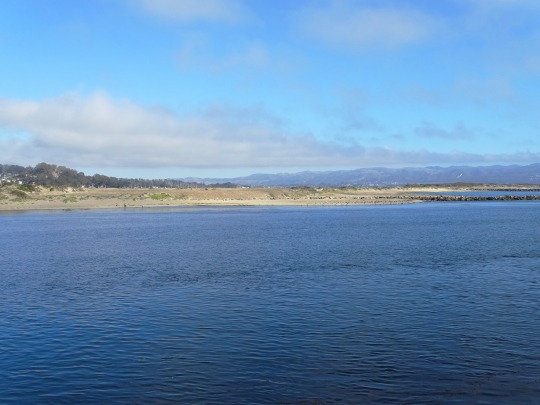
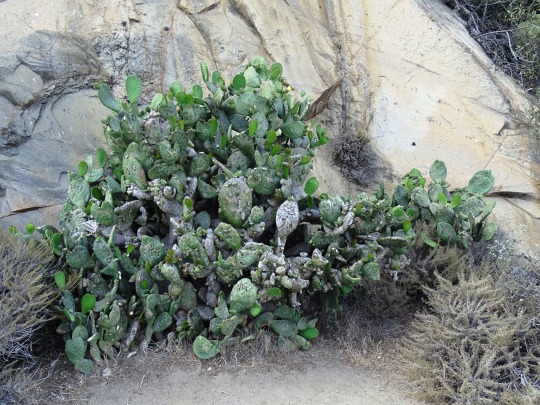

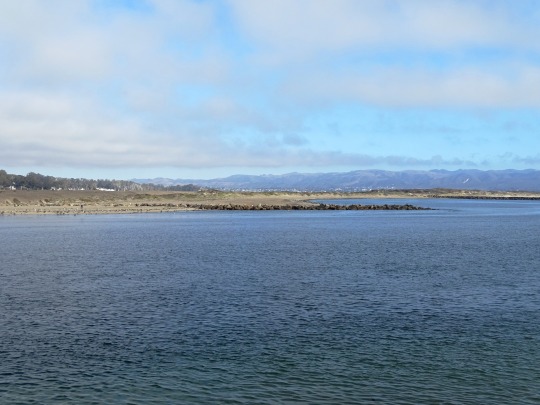
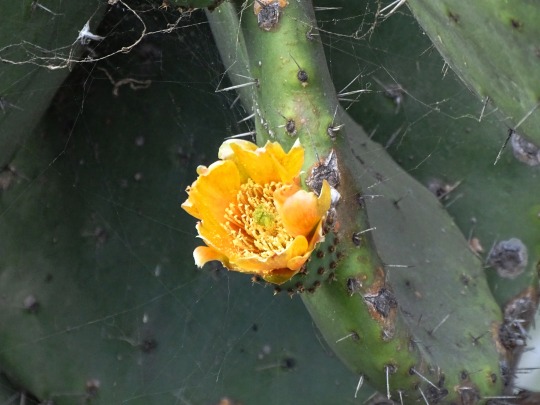
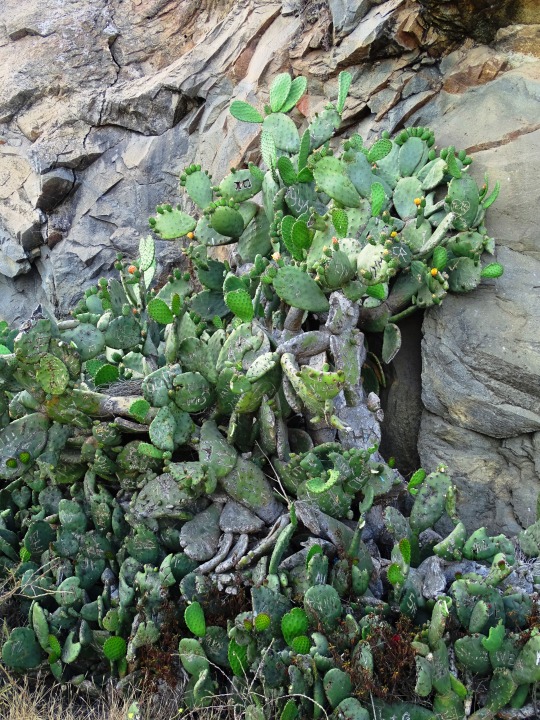
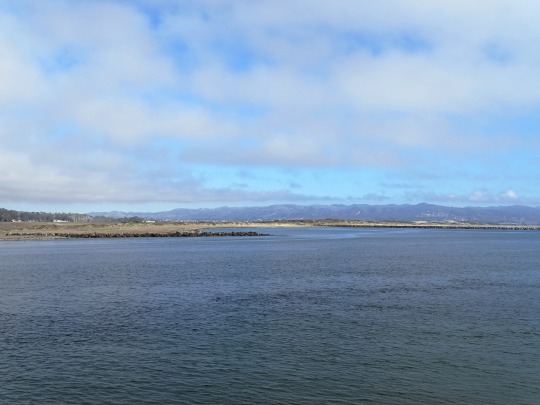
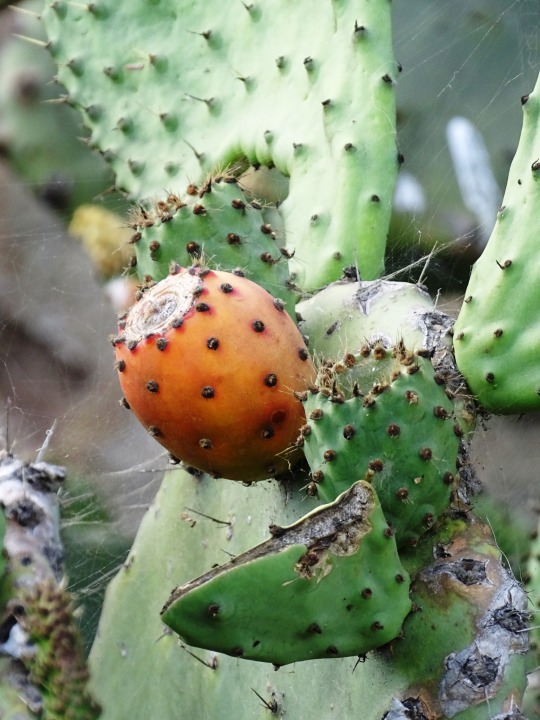
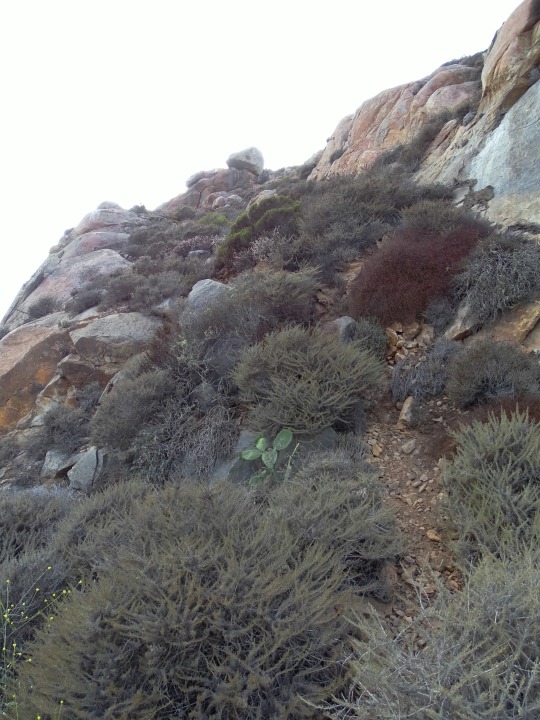
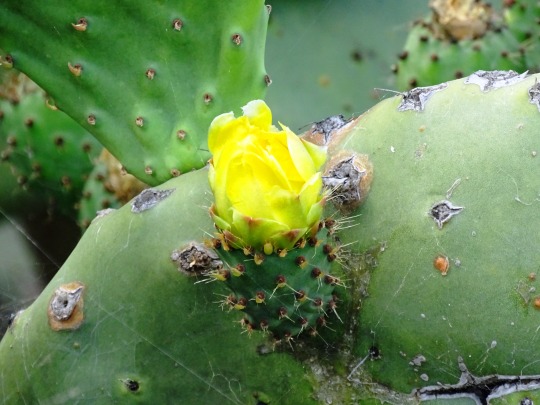
Morro Rock Ecological Preserve, CA (No. 2)
It [the Morro Rock] is composed mostly of dacite, an igneous, volcanic rock. It is a groundmass of plagioclase, with amphibole (hornblende), biotite, pyroxene (augite), quartz, and glass; it also includes phenocrysts of plagioclase. Its silicon dioxide (SiO2) content ranges from 63 to 69 percent.
The dacite volcanic plugs, lava domes, intrusive sheets, and felsitic rhyolite-dacite between Morro Rock and Islay Hill are part of the Morro Rock-Islay Hill Complex of the Oligocene epoch (from 27 to 23 million years ago). The complex lies east of the San Gregorio-San Simeon-Hosgri fault (the SG-SS-H fault). This complex is one of three probable sources of the volcanic clasts within the sandstone and conglomerate of the Miguelito and Edna members of the Pismo Formation in the Point Sur area 145–160 km (90-100 mi) to the north and west of the SG-SS-H fault. Based on paleomagnetic signatures, the Morro Rock-Islay Hill Complex was rotated 40 to 50 degrees, perhaps during late Miocene or early Pliocene time.
Source: Wikipedia
#Opuntia ficus-indica#Morro Rock Ecological Preserve#Morro Rock#Morro Bay#Pacific Ocean#sailing boat#Morro Bay Harbor#evening light#public art#sculpture#flora#nature#geology#volcanic plug#Fisherman's Family by Elizabeth MacQueen#Santa Lucia Range#Nine Sisters#San Luis Obispo County#travel#original photography#vacation#tourist attraction#landmark#cityscape#landscape#seascape#summer 2022#USA#architecture#prickly pear
1 note
·
View note
Text
Opuntia ficus-indica (prickly pear) at Oaxaca, Yagul, Mexico



#Opuntia ficus-indica#prickly pear fruit#prickly pear#cactus flower#cactus fruit#flowers#pink flowers#pink#fruit#Oaxaca#Yagul#Mexico#cacti#succulents#plants#nature#desert
21 notes
·
View notes
Video
youtube
Os Maiores Produtores de FIGO-DA-ÍNDIA do Mundo
0 notes
Text
CAM plants open their stomata at night and close them during the day, exactly the opposite of the pattern observed in leaves of C3 and C4 plants (Figure 9.22).


"Plant Physiology and Development" int'l 6e - Taiz, L., Zeiger, E., Møller, I.M., Murphy, A.
#book quotes#plant physiology and development#nonfiction#textbook#photosynthesis#carbon dioxide#assimilation#evaporation#water#stomata#conductance#cactus#opuntia#opuntia ficus indica#gas exchange#water loss#photorespiration
0 notes
Text

Prickly Pear (Opuntia ficus-indica) in a Pot - Arnoldus Syens - 17th c. - via The Morgan
656 notes
·
View notes
Text


The fresh fruits of Opuntia ficus - indica, Calabria, Italy
Photos by @cristian_ferraro and @archie.and.wolf
Follow us on Instagram, @calabria_mediterranea
#calabria#italy#italia#south italy#southern italy#mediterranean#opuntia#mediterranean sea#sea#fruit#fruits#europe#wildlife#wild#nature photography#nature#landscapes#landscape#arcomagno#san nicola arcella
14 notes
·
View notes
Text

Nopal (Opuntia ficus-indica)
#cottage aesthetic#cottagecore#flowercore#flowers#landscape#naturaleza#nature#wildflowers#bloom-angel#nopales#Nopal#cactus#cacti#Dessert plants
10 notes
·
View notes
Text

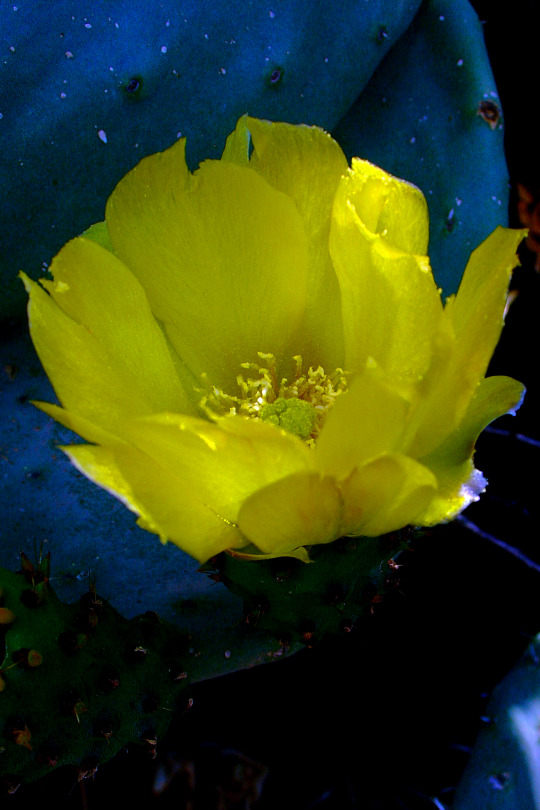


O – Opuntia ficus-indica (L.) Mill. – Fico d'India (Cactaceae)
19 notes
·
View notes
Photo

Opuntia ficus-indica, the Indian fig opuntia or prickly pear,
41 notes
·
View notes
Text
Tamarind Tree
Those were the impeccable times.
Thatched roof home, cow-dung veneered verandah stretched from the shallow pond to the phani manasa shrub.
Grandmother appearing. Two brinjals in hand. Two khadus on two wrists. Jingling. Ironly cuffs.
Said, "These are yours now — two young cows, you Badua! Take them to the grazing field. Protect them from Pashupati the bull. Collect dung in an iron pail.
We will not cut anymore this year a tamarind tree.
Only dry coconut shells, chaffs, cow dung cakes to boil cauldrons of paddy.”
The two brinjals were burnt the same night on the embers of a two-mouth chuli. Their violet skins peeled off, revealing mouth watering meat.
The same year, my grandmother peed on the verandah. On the mud it had made she slid, to break her forehead against her iron arm.
The vaidya prescribed a Chandrayan.
"Scant virtue, woman, too much phlegm! Yet, your silly heart beats!" He roared kindly.
Crooked lips — red eyes — three aunts circled in from their in-laws’ by noon —
At nightfall, we downed a tamarind tree.
Glossary:
Phani Manasa: Indian prickly pear tree, Opuntia ficus-indica. Khadus: Thick bangles. Badua: The head of a village (affectionately used). Chuli: An oven made by digging a hole in the ground. Vaidya: An ayurvedic doctor. Chandrayan: A Hindu ritual to wash off the sins of one who is soon to be deceased.
(The poem was first published in the Sahitya Akademi's ‘Indian Literature’ #326 in December, 2022)
#Poem#Potery#Childhood Memories#Fuel#Memories of My Grandmother#Poverty#Rural Bengal Life#Tamarind Tree#What burns and with what do you burn it?
2 notes
·
View notes
Note
WHAT DO YOU MEAN MICHIGAN HAS CACTI
YEAH BUD! prickly pear cactus, opuntia ficus-indica, is native to Michigan!! it sounds absolutely insane, but i recall reading a report last year about some being found waaaay in the UP!
2 notes
·
View notes
Text
AquaCacteen: The Cactus Elixir Your Skin Deserves 🌵✨
AquaCacteen, derived from the prickly pear cactus (Opuntia ficus-indica), is a powerful skin elixir celebrated for its soothing and hydrating properties. This ultra-refined ingredient is designed to calm irritated skin by inhibiting stress marker release from sensory nerve cells, making it ideal for sensitive or stressed skin.
Why AquaCacteen Stands Out
Rich in water-binding compounds, AquaCacteen delivers exceptional hydration, even in rinse-off formulations. Clinical studies highlight its ability to soothe, firm, and deeply hydrate skin for both men and women. Whether used after shaving or to combat UV-induced skin stress, AquaCacteen™ offers long-term benefits that rejuvenate and protect.
Nature Meets Science
This sustainable ingredient is sourced from organic-certified prickly pear cactus, a sacred plant with roots in Aztec traditions. The cactus is packed with antioxidants like piscidic acid, which prevents reactive oxygen species (ROS) formation, safeguarding skin tissues. Additionally, it boasts a treasure trove of vitamins (A, B1, B2, B3, and C) and minerals (potassium, calcium, magnesium) to nourish and revitalize your skin.
Proven Benefits
In vitro: AquaCacteen inhibits stress factor release, providing instant calming effects. In vivo: It soothes men’s skin post-shave, firms UV-treated skin, and enhances hydration even in shower gels.
Key Features
Hydration Hero: Deeply hydrates and soothes irritated skin.
Protect & Firm: Strengthens skin’s barrier while reducing signs of stress.
Sustainable & Clean: Available in ECOCERT, NATURE-certified, and COSMOS-approved versions.
Product Versatility
AquaCacteen comes in multiple forms to suit diverse skincare needs:
Standard water-soluble version
Oil-soluble version for versatile formulations
Preservative-free option
The Ideal Choice for Conscious Skincare
Backed by nature and science, AquaCacteen is a testament to the power of clean, sustainable beauty. Its high-performance capabilities make it a staple ingredient for skincare products that prioritize hydration, protection, and gentle care.
💧 Elevate your skincare game with AquaCacteen—where ancient tradition meets modern innovation! 🌵
0 notes
